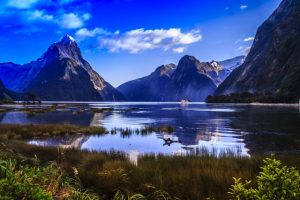February 6th is a national holiday in New Zealand. It’s Waitangi Day, which commemorates the signing of the treaty between the British and the Maori people that founded the modern state of New Zealand. From Auckland to Wellington, kiwi families will be enjoying a smorgasbord of food, music and craft at parks and beaches on their national day. Festivities at Waitangi, where the treaty was signed, begin early in the morning with solemn speeches, church services, and a 21-gun salute before focusing on fun with live music.
But thinking of Waitangi Day as the New Zealand equivalent of Paddy’s Day would be a huge mistake. If you’re Irish in New Zealand, by all means you should get out and celebrate the day. However, a review of the history of how it has been celebrated is a short course in New Zealand history and race relations.
On the surface, Waitangi Day is a fantastic celebration of a relatively peaceful nation’s founding. It celebrates a treaty that clearly said it wanted to create one nation by integrating two peoples. While other countries celebrate a national day with a bloody history (we’re looking at you, USA and France), kiwis are festively commemorating a treaty with a fun day out. The treaty even promotes equality and fraternity between two groups. So why has the day been controversial in the past?
Navigating New Zealand’s History
New Zealand is a pretty amazing country to spend a year or even to make your new home. It has some things in common with Ireland, being a smaller island with a larger neighbour. The scenery is so gorgeous it almost seems enchanted. In fact, both countries see a lot of film crews. The surface is quite jolly, without the open racial tensions of our larger neighbours. But beneath the surface, it is a bit more complicated. And if you’re considering moving to New Zealand, it’s good to know as much as possible about those currents beneath the surface.

Some of the Maori population have protested Waitangi Day for decades as the interpretation and activities of the day have evolved. Arguably, while New Zealand keeps some aspect of Maori culture to the forefront, the indigenous people are not universally pleased with how the details of the treaty have been interpreted. The Maori population has, on average, a shorter life span than other New Zealanders and is over-represented in the prison system. The question now is how to put that inequality in the past.
Overall, New Zealand is a beautiful blend of cultures. The All Blacks rugby team have made the haka famous around the world. When you think about it, weaving a Maori tradition into a sport named for an English school where the game was born is a very powerful symbol of New Zealand’s ideals as well as concrete proof they can be achieved.





